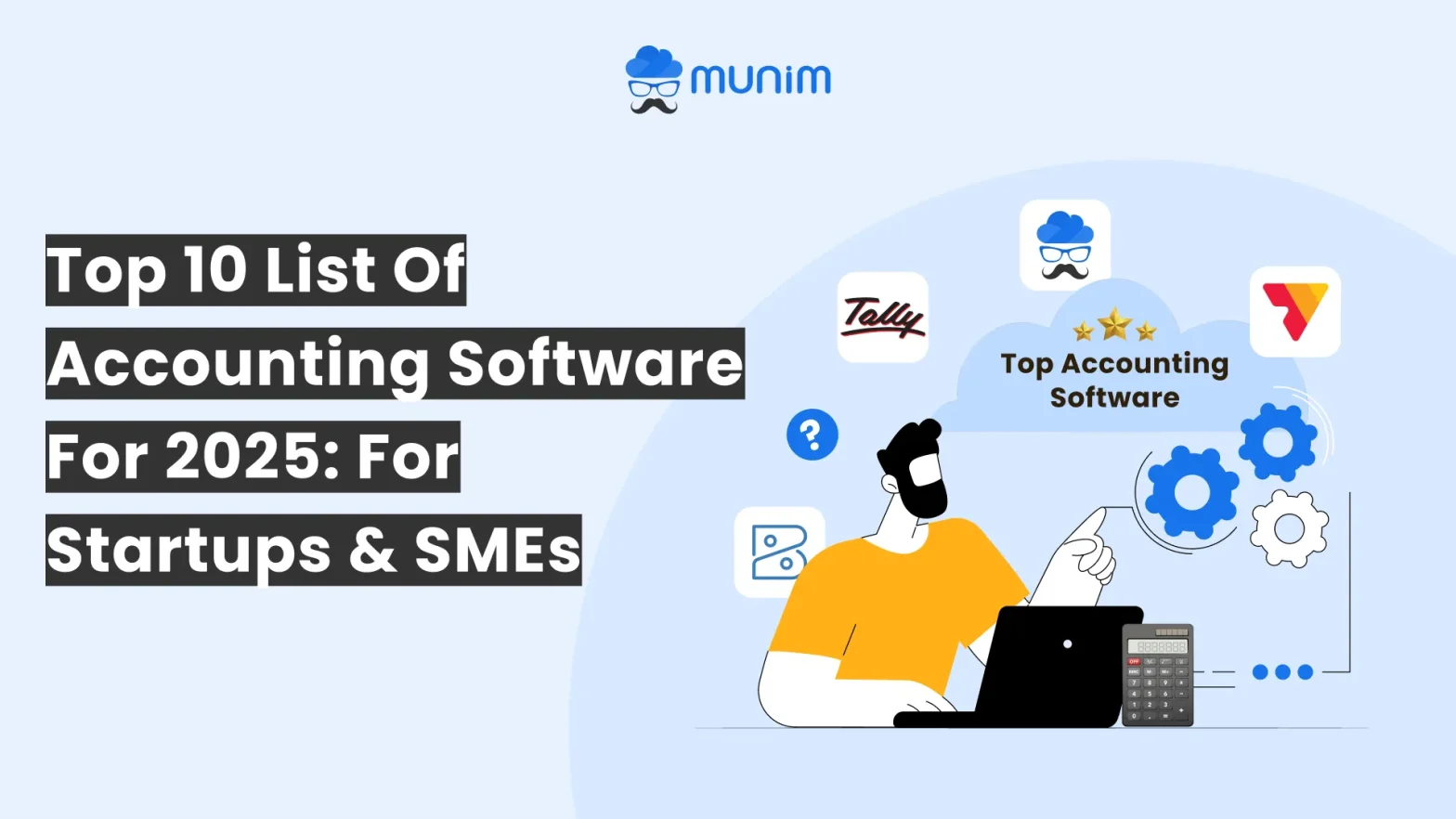How To Streamline Your Startup’s Bookkeeping Process

Kudos to you for starting a new business. In the beginning stages of a business, an entrepreneur has to juggle a number of different tasks, such as hiring, marketing, sales, and operations. Amid all these tasks, there is another equally important task, i.e., financial accounting and bookkeeping. If you are not from a commerce background, it may get overwhelming to manage books of accounts.
With an intent to help you maintain your start-up’s bookkeeping process, we will enlighten you with some tips and best practices and also introduce you to cloud-based accounting software.
Bookkeeping V/S Accounting: What’s The Difference?
There is a common misconception among business owners that accounting and bookkeeping are the same things, but they are not. Accounting and bookkeeping are both different concepts that are important to the finances of your startup.
Let’s understand the difference;

Bookkeeping: It is all about maintaining records of the day-to-day expenses of your company. The responsibility of a bookkeeper includes collecting invoices from vendors, expediting them, reconciling bank accounts, and much more.
Example: When you receive a bill for your procurement, your bookkeeper has to ensure that the bill is paid on time, and the transaction is recorded.
Accounting: Under this concept, the financial statements are analyzed to make budgetary recommendations for the company. Apart from that, the accountants are responsible for reviewing financial statements for accuracy and completeness.
Example: Once the financial statements are prepared, your accountant will scrutinize them for any discrepancies and use the data to advise you on the company’s financial position.
List Of Financial Records Startups Should Maintain
Startups should maintain data on all their transactions. Following is the list of records a startup should maintain:
- Bills
- Receipts
- Invoices
- Bank Statements
- Credit Card Statements
- Financial Statements
- Tax Forms
- Tax Returns and Supporting Documents
Process Of Bookkeeping Startups Should Follow
Right from the start of a new business, it should be clear to expect success and longevity. Here is the step-by-step process that you should implement to streamline your bookkeeping and maintain accurate books of accounts:
Step 1: Open a bank account
When starting a new business, the first step should be to open a separate bank account, i.e., a current account dedicated to your business. In India, some people often operate their business finances from their bank accounts, which is not an ideal idea. It will mix up your personal and business transactions, and for a bookkeeper, it becomes a jigsaw puzzle. It is better to have separate bank accounts from the start of your business.
Get all the required documents before proceeding with the bank account opening process.
Step 2: Closely Monitor Sales & Expenses
Whether it is a startup or an established business, you should always keep your eyes on what’s going out and what’s coming in. Closely tracking these essential performance indicators will keep you updated on the company’s financial status, enabling you to make informed financial decisions.
Step 3: Establish A Payment System
When you start a new business, it is difficult to keep track of the money you owe. If a proper system is not implemented, you may lose money. To avoid such situations, you should introduce an invoicing system. And don’t forget to mention payment terms and the mode of payment on the invoice itself.
Step 4: Devise A Process To Keep A Check On KPIs
You should check the essential KPIs of your business. Keeping track of them will help you understand the financial health of your startup. Here is a list of a few general KPIs that you should track regularly:
- Cash flow – how much money is coming in and going out of your business
- Gross margin – net sales revenue – the cost of goods sold
- Net margin – net income/revenue x 100
You can add more indicators based on your business industry.
Step 5: Know Your Tax Liabilities
When you are setting up a startup, find out how much tax should be paid so that you can levy the same from your customers. After the implementation of Goods and Service Tax in India, the indirect tax system has been simplified, so you won’t need expert help to know your tax liabilities.
Best Bookkeeping Tips For Startups
Since you are starting a new business, several things can make your bookkeeping easy, and here are some of the top tips:
- When a transaction is made successfully, record it in your books, as soon as possible.
- If there are any major expenses, plan well ahead.
- Open a separate account for your business savings
- Keep track of expenses, always
- Clear unpaid invoices as quickly as possible
- Implement bookkeeping and accounting software
Over To You
So this was all about everything you need to know about the bookkeeping process for startups. We hope that after reading this blog, you are well aware of the process and will be able to implement it at your company. Even after following the tips, if you find the process tedious, switch to cloud-based accounting software, such as Munim. It is simple to use. Switch to web-based accounting software today and be worry-free.
Frequently Asked Questions On Bookkeeping Process For Startups
Why bookkeeping for startups?
Well-maintained books of accounts give you a perfect idea of accounts receivable and payables so that you can know the financial health of your startup, enabling easy decision-making and preparing your business to scale.
What kind of bookkeeping is used by small businesses?
Normally, most small business accounts are cash-based or accrual. However, cash-based accounting is not suitable for all types of small businesses.
How do you analyze startup financials?
On the basis of the following key performance indicators (KPIs), you can analyze the growth of your business:
- Gross revenue
- Gross profit
- Net income
- Operating expenses, etc.
What financial ratios are used for startups?
The following are the financial ratios important for a startup:
- Debt-to-Equity Ratio
- Interest Coverage Ratio
- Operating Cash Flow Ratio
- Free Cash Flow Ratio
- Revenue Growth Rate






